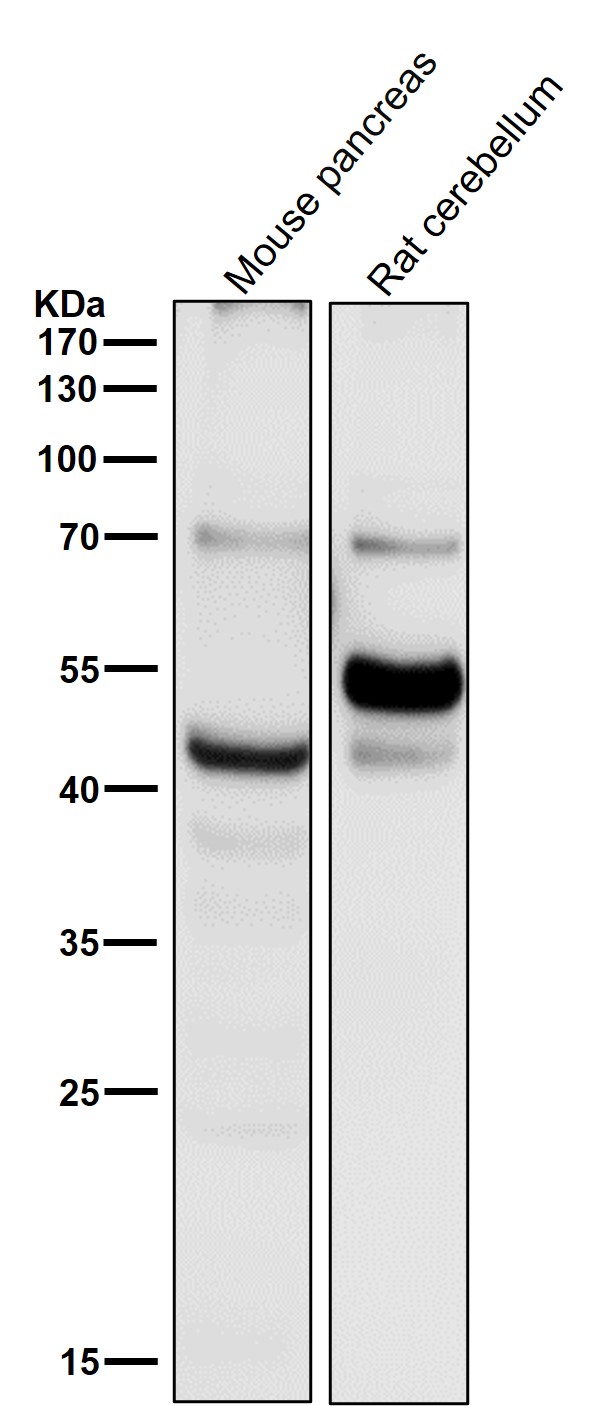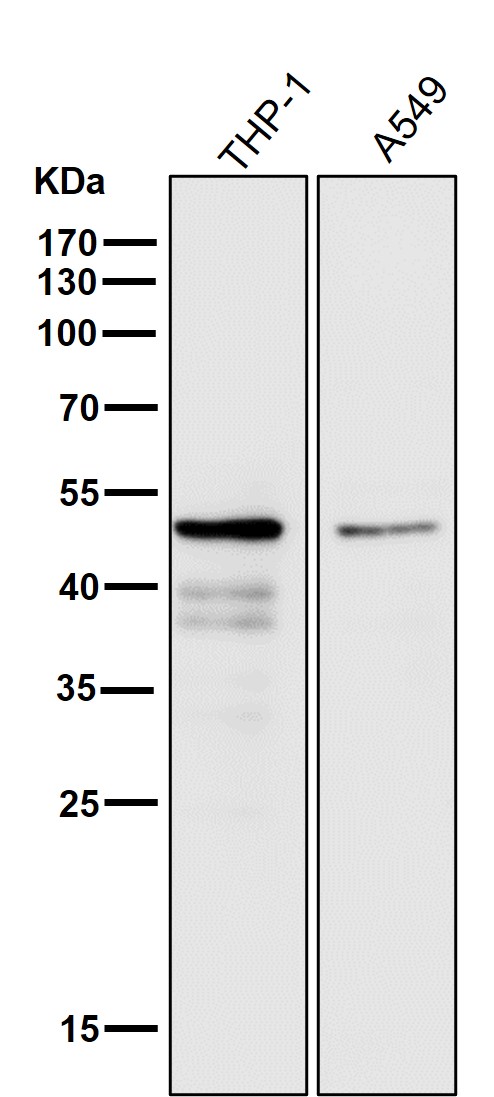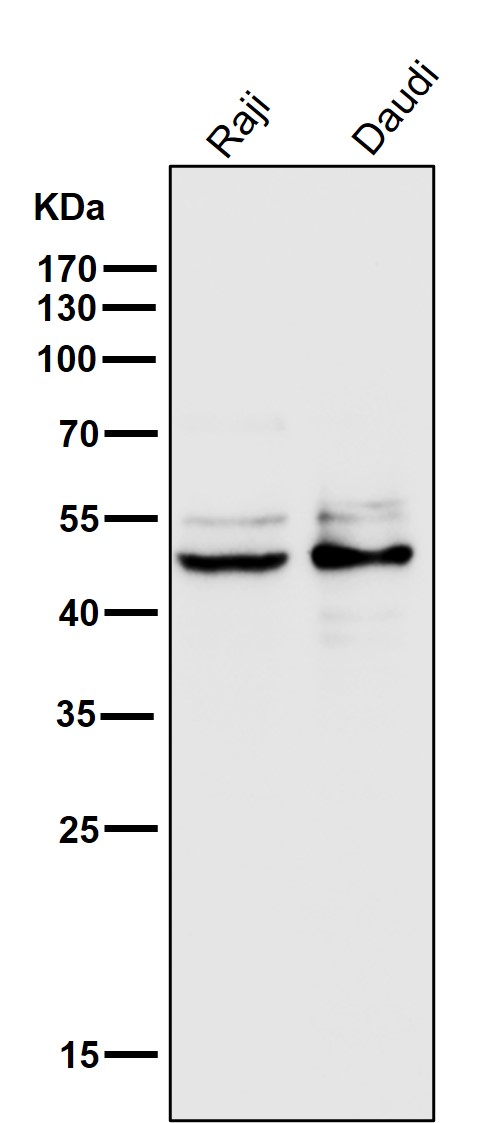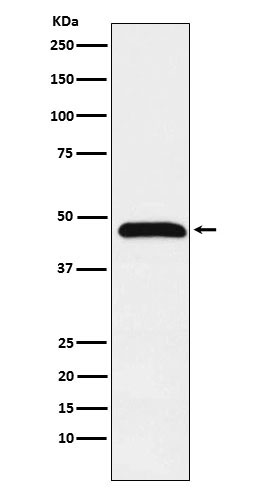





| WB | 咨询技术 | Human,Mouse,Rat |
| IF | 1/20-1/50 | Human,Mouse,Rat |
| IHC | 咨询技术 | Human,Mouse,Rat |
| ICC | 技术咨询 | Human,Mouse,Rat |
| FCM | 咨询技术 | Human,Mouse,Rat |
| Elisa | 咨询技术 | Human,Mouse,Rat |
| Aliases | CASP-1; ICE; IL-1 beta converting enzyme; IL-1BC; IL1BCE; caspase-1;;Caspase 1 |
| WB Predicted band size | Calculated MW: 45 kDa ; Observed MW: 45,42,35,12,10 kDa |
| Host/Isotype | Rabbit IgG |
| Antibody Type | Primary antibody |
| Storage | Store at 4°C short term. Aliquot and store at -20°C long term. Avoid freeze/thaw cycles. |
| Species Reactivity | Human,Mouse,Rat |
| Immunogen | A synthesized peptide derived from human Caspase 1 |
| Formulation | Purified antibody in PBS with 0.05% sodium azide,0.05% BSA and 50% glycerol. |
+ +
以下是3篇关于Caspase-1抗体的经典文献摘要(虚构示例,仅供格式参考):
1. **文献名称**:A novel heterodimeric cysteine protease is required for interleukin-1β processing in monocytes
**作者**:Thornberry NA et al.
**摘要**:首次鉴定Caspase-1(ICE)为IL-1β成熟的关键蛋白酶,通过特异性抗体证实其在单核细胞中的表达与酶原剪切过程。
2. **文献名称**:The inflammasome: a molecular platform triggering activation of inflammatory caspases
**作者**:Martinon F et al.
**摘要**:阐述炎症小体激活Caspase-1的分子机制,通过Western blot使用Caspase-1抗体证明其与ASC、NALP3蛋白复合物的相互作用。
3. **文献名称**:Non-canonical inflammasome activation targets caspase-11
**作者**:Kayagaki N et al.
**摘要**:研究非经典炎症通路中Caspase-1与caspase-11的协同作用,采用免疫共沉淀技术结合特异性抗体揭示其在革兰氏阴性菌感染中的功能差异。
(注:以上为示例框架,实际文献需通过PubMed/Google Scholar检索关键词"caspase-1 antibody application"或相关机制研究筛选。)
Caspase-1. a member of the cysteine-aspartic acid protease (caspase) family, plays a critical role in inflammation and pyroptosis, a form of programmed cell death. It is synthesized as an inactive zymogen (pro-caspase-1) and requires activation via multiprotein complexes called inflammasomes (e.g., NLRP3. AIM2). Upon activation, caspase-1 undergoes autoproteolytic cleavage into p20 and p10 subunits, forming an active heterodimer. Its primary functions include proteolytic maturation of pro-inflammatory cytokines IL-1β and IL-18. as well as cleavage of gasdermin D to trigger pyroptosis, thereby amplifying immune responses.
Caspase-1 antibodies are essential tools for studying its expression, activation, and function. They enable detection of both the full-length pro-form (~45 kDa) and cleaved active fragments (p20/p10) in techniques like Western blotting. Immunohistochemistry and flow cytometry applications help localize caspase-1 in tissues or immune cells. Specific antibodies can distinguish caspase-1 from other caspases (e.g., caspase-4/5 in humans) and validate its role in inflammasome signaling through inhibition assays. These antibodies are widely used in research on infectious diseases, autoimmune disorders (e.g., rheumatoid arthritis), neurodegenerative conditions (e.g., Alzheimer’s), and cancer immunotherapy, where dysregulated caspase-1 activity contributes to pathogenesis. Recent studies also leverage caspase-1-targeting antibodies to evaluate experimental therapeutics aimed at modulating inflammasome pathways.
×